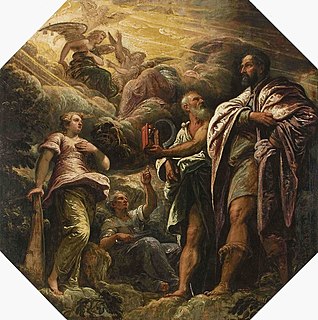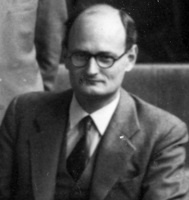
In metaphilosophy and ethics, meta-ethics is the study of the nature, scope, and meaning of moral judgment. It is one of the three branches of ethics generally studied by philosophers, the others being normative ethics and applied ethics.

Morality is the differentiation of intentions, decisions and actions between those that are distinguished as proper and those that are improper. Morality can be a body of standards or principles derived from a code of conduct from a particular philosophy, religion or culture, or it can derive from a standard that a person believes should be universal. Morality may also be specifically synonymous with "goodness" or "rightness".
David Gauthier is a Canadian-American philosopher best known for his neo-Hobbesian social contract (contractarian) theory of morality, as developed in his 1986 book Morals by Agreement.
Moral relativism or ethical relativism is a term used to describe several philosophical positions concerned with the differences in moral judgments across different peoples and their own particular cultures. An advocate of such ideas is often labeled simply as a relativist for short. In detail, descriptive moral relativism holds only that people do, in fact, disagree fundamentally about what is moral, with no judgement being expressed on the desirability of this. Meta-ethical moral relativism holds that in such disagreements, nobody is objectively right or wrong. Normative moral relativism holds that because nobody is right or wrong, everyone ought to tolerate the behavior of others even when considerably large disagreements about the morality of particular things exist.
Moral universalism is the meta-ethical position that some system of ethics, or a universal ethic, applies universally, that is, for "all similarly situated individuals", regardless of culture, race, sex, religion, nationality, sexual orientation, or any other distinguishing feature. Moral universalism is opposed to moral nihilism and moral relativism. However, not all forms of moral universalism are absolutist, nor are they necessarily value monist; many forms of universalism, such as utilitarianism, are non-absolutist, and some forms, such as that of Isaiah Berlin, may be value pluralist.

Groundwork of the Metaphysics of Morals is the first of Immanuel Kant's mature works on moral philosophy and remains one of the most influential in the field. Kant conceives his investigation as a work of foundational ethics—one that clears the ground for future research by explaining the core concepts and principles of moral theory, and showing that they are normative for rational agents.

Richard Mervyn Hare, usually cited as R. M. Hare, was an English moral philosopher who held the post of White's Professor of Moral Philosophy at the University of Oxford from 1966 until 1983. He subsequently taught for a number of years at the University of Florida. His meta-ethical theories were influential during the second half of the twentieth century.
In moral philosophy, deontological ethics or deontology is the normative ethical theory that the morality of an action should be based on whether that action itself is right or wrong under a series of rules, rather than based on the consequences of the action. It is sometimes described as duty-, obligation-, or rule-based ethics. Deontological ethics is commonly contrasted to consequentialism, virtue ethics, and pragmatic ethics. In this terminology, action is more important than the consequences.
Amorality is an absence of, indifference towards, or disregard for morality. Some simply refer to it as a case of not being moral or immoral. Amoral should not be confused with immoral, which refers to an agent doing or thinking something they know or believe to be wrong.

The Life and Morals of Jesus of Nazareth, commonly referred to as the Jefferson Bible, is one of two religious works constructed by Thomas Jefferson. The first, The Philosophy of Jesus of Nazareth, was completed in 1804, but no copies exist today. The second, The Life and Morals of Jesus of Nazareth, was completed in 1820 by cutting and pasting with a razor and glue numerous sections from the New Testament as extractions of the doctrine of Jesus. Jefferson's condensed composition excludes all miracles by Jesus and most mentions of the supernatural, including sections of the four gospels that contain the Resurrection and most other miracles, and passages that portray Jesus as divine.

Beyond Good and Evil: Prelude to a Philosophy of the Future is a book by philosopher Friedrich Nietzsche that expands the ideas of his previous work Thus Spoke Zarathustra with a more critical and polemical approach. It was first published in 1886.
The National Legion of Decency, also known as the Catholic Legion of Decency, was a Catholic group founded in 1933 as an organization dedicated to identifying and combating objectionable content in motion pictures from the point of view of the American Catholic Church. After receiving a stamp of approval from the secular offices behind Hollywood's Production Code, films during this time period were then submitted to the National Legion of Decency to be reviewed prior to their official duplication and distribution to the general public. Condemnation by the Legion would shake a film's core for success because it meant the population of Catholics, some twenty million strong at the time, were forbidden from attending any screening of the film under pain of mortal sin. The efforts to help parishioners avoid films with objectional content backfired when it was found that it helped promote those films in heavily Catholic neighborhoods among Catholics who may have seen the listing as a suggestion. Although the Legion was often envisioned as a bureaucratic arm of the Catholic Church, it instead was little more than a loose confederation of local organizations, with each diocese appointing a local Legion director, usually a parish priest, who was responsible for Legion activities in that diocese.
Moral nihilism is the meta-ethical view that nothing is morally right or wrong.
Kurt Baier was an Austrian moral philosopher who taught for most of his career in Australia and the United States.
Master–slave morality is a central theme of Friedrich Nietzsche's works, particularly in the first essay of his book, On the Genealogy of Morality. Nietzsche argued that there were two fundamental types of morality: "master morality" and "slave morality". Master morality values pride and power, while slave morality values kindness, empathy, and sympathy. Master morality judges actions as good or bad, unlike slave morality, which judges by a scale of good or evil intentions.

Kantian ethics refers to a deontological ethical theory developed by German philosopher Immanuel Kant that is based on the notion that: "It is impossible to think of anything at all in the world, or indeed even beyond it, that could be considered good without limitation except a good will." The theory was developed as a result of Enlightenment rationalism, stating that an action can only be good if its maxim—the principle behind it—is duty to the moral law, and arises from a sense of duty in the actor.
Moral rationalism, also called ethical rationalism, is a view in meta-ethics according to which moral principles are knowable a priori, by reason alone. Some prominent figures in the history of philosophy who have defended moral rationalism are Plato and Immanuel Kant. Perhaps the most prominent figure in the history of philosophy who has rejected moral rationalism is David Hume. Recent philosophers who have defended moral rationalism include Richard Hare, Christine Korsgaard, Alan Gewirth, and Michael Smith.
Morality is a novella by American writer Stephen King published in the July 2009 issue of Esquire. It was then included as a bonus story in Blockade Billy, a novella published on May 25, 2010, and later collected and re-introduced in the November 3, 2015 anthology The Bazaar of Bad Dreams. In the latter publication, King revealed that the story was inspired by issues of moral philosophy in his own life, back when he was a struggling student and would occasionally shoplift or write other students' essays to make ends meet. Morality received the 2009 Shirley Jackson Award for Best Novelette.

On the Genealogy of Morality: A Polemic is an 1887 book by German philosopher Friedrich Nietzsche. It consists of a preface and three interrelated treatises that expand and follow through on concepts Nietzsche sketched out in Beyond Good and Evil (1886). The three treatises trace episodes in the evolution of moral concepts with a view to confronting "moral prejudices", specifically those of Christianity and Judaism.






